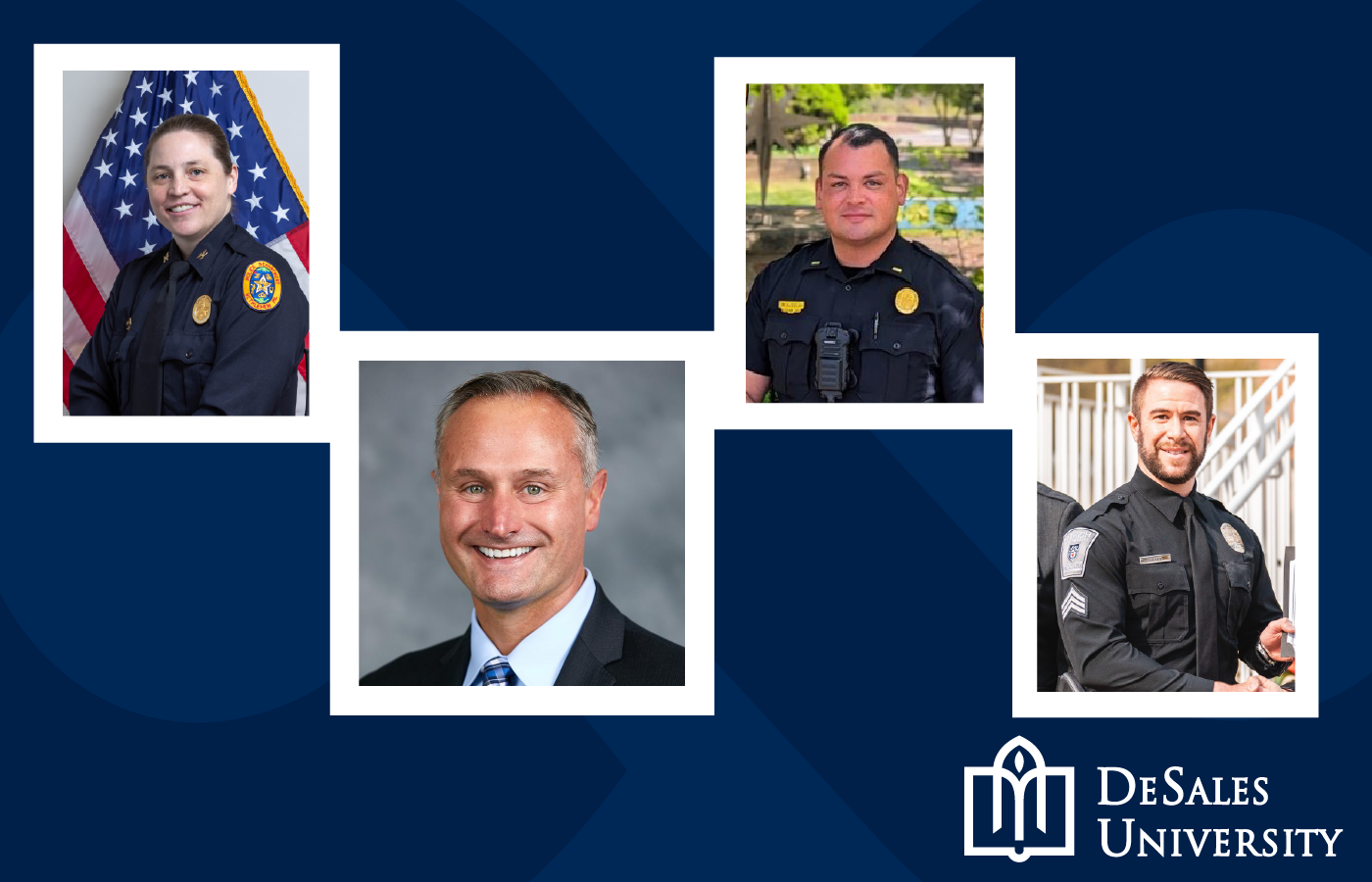Special Panel Examines State of Policing in the Lehigh Valley

Retention, recruitment, trust, and wellbeing. These were the themes highlighted during a special crime and justice panel on the state of local policing.
The Master of Arts in Criminal Justice program hosted the panel discussion on Nov. 19 in the DeSales University Center. It featured four alumni: Chief Michelle Kott and Lt. William Audelo of the Bethlehem Police Department, Chief Keith Morris of the Northampton Community College Police Department, and Sgt. Kyle Fisher of the Lehigh University Police Department.
Kenneth Quick, Ph.D., assistant professor of criminal justice who has over 25 years of experience with the NYPD, served as moderator. He began by asking about the struggles departments faced in the wake of George Floyd’s murder.
Kott, who graduated from DeSales in 2004 and is a 20-year veteran of Bethlehem Police, said the tragedy, as horrible as it was, gave departments a chance to reset and to have those hard conversations with the community.
“There were significant struggles; people were hurting after such a horrific act took the country to its knees, literally,” she said. “It really caused law enforcement to get out in the community and show people that they understand and can hear their concerns.”
Audelo M’16, a Marine Corps veteran who has been with Bethlehem since 2010 and previously served in Iraq and Afghanistan, called it a trying time to be a police officer, even for progressive departments like his.
“Immediately people were calling you a racist, insinuating that this was a standard practice,” he said. “Every human being in this room is their own individual. We had to accept the guilt for something that we weren’t involved in. If we didn’t, there would be no healing.”
The panelists also weighed in on other issues facing police today, including leveraging technology to fight crime, staffing shortages, and a recruitment crisis affecting many states.
Speaking about staffing, Morris M’13, who has more than 28 years of law enforcement experience in both municipal and university settings, cited a lack of support for officers and not enough mental health resources.
“It’s not all just retirement anymore,” he said. “Whole departments in small towns have been leaving; they don’t have that support in their community. We need to start supporting our officers from within and from a mental health aspect. When we take care of them, they take care of the community.”
Despite the difficulties, the panelists agreed that the state of policing in the Lehigh Valley is in a good place and that local municipalities work together to solve major issues. When asked why they chose their career paths, Fisher ’21, M’22 had a simple answer for the students in the audience.
“Because it can be the most rewarding job you will ever work if you have the right attitude,” he said. “As a police officer, you possess such power to do good in this world. If you have the right attitude, you have so much gratitude.”